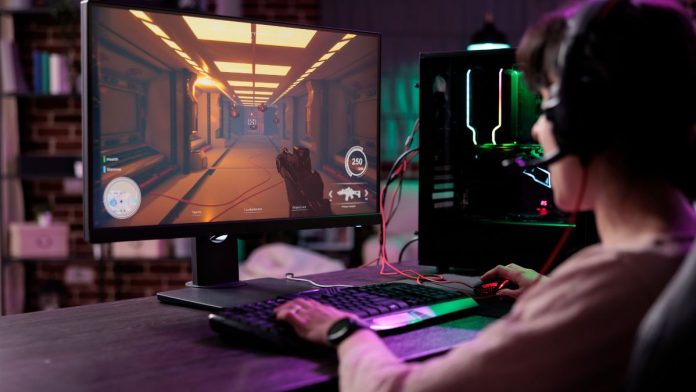Gaming isn’t just fun, it can boost brain flexibility, emotional strength, and social skills. A psychiatrist explains how thoughtful gaming builds mental resilience and helps manage stress.
We’ve all heard this while growing up, “Stop playing video games and do something useful.” For a long time, gaming was seen as just a waste of time. Parents worried it would distract kids from studies, and adults thought it was only for children. But now things have changed. Today, gaming isn’t just a way to pass time, it has become a form of recreation, just like reading a book or watching a movie. In fact, more and more people are turning to video games to relax, unwind, and even connect with others. Whether it’s students playing after school or working professionals logging in after a long day, gaming is now a regular part of many people’s routines.
According to Dr. Parth Nagda, Consultant, Psychiatry at Kokilaben Dhirubhai Ambani Hospital, Navi Mumbai, gaming can actually be good for your mental health, when done right. “Gaming isn’t just a distraction. It engages the brain in ways that can improve cognitive flexibility, emotional resilience, and even social connection,” he explains.
How can gaming train your brain and build mental strength?
1. It makes your brain more flexible
You know that feeling when you’re trying to beat a tricky level or solve a puzzle in a game? That’s your brain getting a workout. Games, especially those that require strategy, decision-making, or adapting to changing situations, help build what psychologists call cognitive flexibility.
“Puzzle and strategy games force players to think critically, plan their moves, and adapt if their original plan fails,” says Dr. Nagda. “This helps people become mentally agile in real life too.”
Even action and role-playing games are helpful. They often demand quick reflexes, multitasking, and on-the-spot decision-making. Research even shows that surgeons who play video games regularly tend to have faster reaction times in surgery.
Gaming teaches you to think on your feet and be more adaptable, important traits for dealing with real-world challenges.
2. It builds emotional resilience
Remember playing Mario or Tetris as a kid? You’d fail a level, try again, fail again, and keep going until you got it right. That kind of persistence is what emotional resilience is all about.
“Games allow you to fail, learn from it, and keep going in a low-risk environment,” says Dr. Nagda. “This helps build the mindset of not giving up when things get tough.”
That’s not all. Most games reward players when they succeed—whether it’s unlocking a new level, earning points, or receiving in-game praise. These small rewards boost motivation and self-esteem, reinforcing the idea that effort leads to achievement.
Over time, this can translate into real-life confidence and emotional maturity.
3. It boosts social skills and connection
Gone are the days when gaming was a lonely activity. Today’s games are more social than ever, whether you’re teaming up with friends on a mission or chatting with players from around the world.
“Online multiplayer games encourage communication, cooperation, and sometimes even leadership,” says Dr. Nagda. “This is especially helpful for people who struggle with social anxiety or feel isolated.”
Games like Fortnite, Call of Duty, or Among Us require players to coordinate, solve problems together, and sometimes take charge. These virtual experiences build real-life skills like teamwork and emotional intelligence.
And for many, online games become communities. Sharing wins, working on goals, or even just chatting during gameplay helps players feel connected and less alone.
4. It helps you relax and manage stress
Modern life is stressful. We keep on juggling between our personal and professional lives. And while some unwind with music or a walk, others find comfort in gaming.
“After a long day at work, a good gaming session can feel like a reset button for your brain,” says Dr. Nagda. “It offers a break from reality and helps with emotional regulation.”
Many people find that gaming helps them release tension, forget worries temporarily, and enter a ‘flow’ state where they’re completely immersed in something fun.
Of course, like any tool, gaming must be used wisely. Too much of it or using it to escape real problems can do more harm than good. But when balanced, gaming can be a powerful outlet for stress relief.
So, should you start gaming?
If you’re already a gamer, then you may be doing your mental health a favour. And if you’ve never picked up a controller before, it might be worth exploring.
But remember, moderation is key. Dr. Nagda suggests:
- Choosing games that challenge your brain
- Limiting screen time to avoid sleep and mood issues
- Balancing gaming with physical activity and real-life interactions
